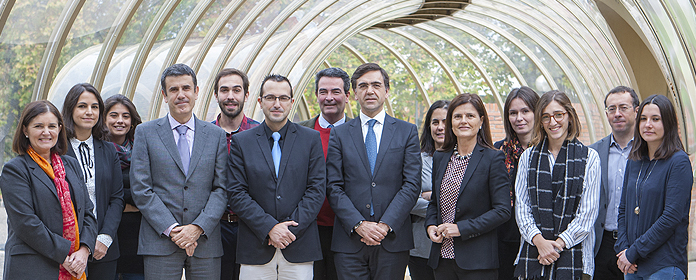The European Union funds project to harness electricity production from renewable energy in buildings.
The "project SABINA" will apply artificial intelligence techniques

The European Union and the Swiss government have granted, through the H2020 program, 4.6 million euros (3.8 and 0.8 million respectively) to the 'project SABINA ' (SmArt BI-directional multi eNergy gAteway), in which the University of Navarra participates. School of Architecture of the University of Navarra.
The project, which will be carried out over the next four years, will develop a technology capable of making the most of energy from renewable sources integrated into buildings. To achieve this goal , a novel technology based on artificial intelligence will be used: bio-inspired algorithms, which learn to solve problems by observing natural phenomena, will be applied.
Thanks to this technology, a virtual building will be created for each of the buildings under study. This virtual building will act as a clone of the real building and will allow to study its thermal behavior in a more precise way and with a significant reduction of time and money.
"One of the big problems with electrical energy is that it is not easy to store it: batteries are expensive and have high maintenance costs. For this reason almost all the energy produced must be consumed and this means that in many cases the production from renewable sources such as the sun or wind cannot be used", says the main researcher , Carlos Fernández Bandera.
The project SABINA will study how to make the most of this clean energy. To do so, it will use an inexhaustible and free thermal storage source : the building's own construction materials.
"The virtual buildings generated will be able to measure the amount of energy that buildings can store inside to produce more comfort with energy that comes from renewable sources," says Fernández Bandera. This technique will be an important step towards zero-emission buildings.
The research, which is funded within the call: "competivie low-carbon energy", started with the thesis of the School professor Carlos Fernández Bandera, directed by Germán Ramos Ruiz and entitled 'Artificial intelligence as inspiration for the generation and design of thermal models of buildings'.
The development of this research will be realized by the group SAVIArquitectura together with the rest of the consortium formed by nine partners from different countries of the European Union (Denmark, Belgium, Greece, Spain, United Kingdom and Switzerland).
This is the third European H2020 project of the University of Navarra. Previously, the European Union and the Swiss Government have funded other projects of the research center Applied Medicine and the Clínica Universidad de Navarra.




